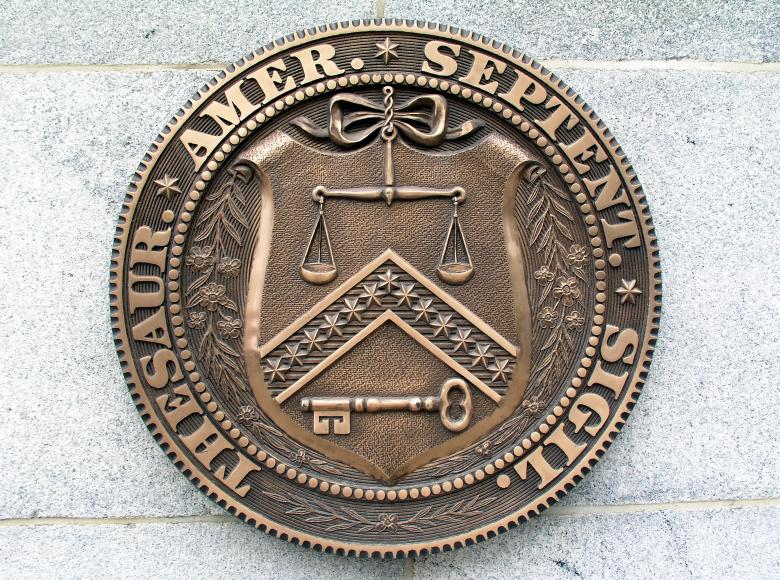
The Journal of Accountancy posted The IRS’s Dirty Dozen Tax Scams today. These are:
1. Identity Theft
2. Phone Scams
3. Phishing
4. Return Preparer Fraud
5. Hiding Money or Income Offshore
6. Inflated Refund Claims
7. Fake Charities
8. Falsely Padding Deductions
9. Excessive Claims for Business Credits
10. Falsifying Income to Claim Tax Credits
I want to commend the IRS for bringing this list together with links and for the promotion of this information by the AICPA. I would like to offer some additional comments on some of these items beyond what it is indicated on the link above.
Regarding identify theft, phone scams and phishing, be particularly concerned regarding collection efforts, see my comments on this topic from my blog December 10, 2015 post. Whenever you are contacted by the IRS always obtain the name and badge ID number of the party you are speaking with over the phone. Write down this information and record the date and time. I would recommend that you ask for a call back number and for the name of the individual’s supervisor. Ask where they are located. Indicate you are asking for this information to protect yourself from identity theft, phone scams and phishing concerns. The IRS does not threaten people. If that is ever the case ask to speak to the supervisor. You can also always call the IRS at 800-829-1040 to speak to a person. Getting through can be an issue so be patient. You have rights as indicated in IRS Publication 1. Know your rights and make use of your rights including being able to speak to a supervisor at any time.
Regarding excessive claims for business credits I have some experience here in the nature of the Credit for Increasing Research Expenditures, Form 6765, which the IRS calls Research Tax Credit here. This tax credit had been a temporary credit updated 19 times between 1981 and 2015. However, in December 2015 this credit became permanent. Beware of research credit firms that are there to help your firm take aggressive positions related to the newly permanent research tax credit. I have been contacted by research credit firms that take aggressive positions to assist them with IRS controversies and I have elected not to assist such firms. I have also been engaged by firms that attempt to follow IRS guidance as indicated by the IRS and attempt to obtain the maximum credit their clients are legally entitled to receive. Due to the nature of this credit requiring technical judgment there can be differences of opinion between ethical responsive research credit service providers and the IRS.
At the IRS the IRS uses engineers trained in the area of research tax credit that work with technical representatives of the firm being audited and the IRS agents assigned to the case. The IRS has found that the application of the credit requires judgment by technical employees as well as the accumulation of data to determine the credit. Ethical firms that obtain the maximum legal tax credit following IRS guidance educate technical employees at the firm of what qualifies and work with them to develop a study. Typical data supporting firm technical employees may include, but not be limited to these top ten of nearly 40 areas that may be explored:
1. Conceptual drafts, drawings, sketches, including iterations
2. Preliminary calculations or specifications, whether produced internally by businesses claiming the credit or externally by its client
3. Memos emails or other correspondence relating to a design
4. Engineering change orders to show the evolution of the process
5. Mapping of the order of operational procedures
6. Data gathered during testing and prototype development including lab verification data or summary data
7. Any documentation that demonstrates define, measure, analyze, implement and control
8. Project folders, schedules, timelines, project lists, including Gantt charts,
9. Patents and their supporting work papers
10. Documentation of failures
For this reason beware of the firm that networks with CEO of CFO and markets a product that generates significant credit dollars with minimal effort by the research credit provider.
I offer a few cautions here and suggestions these for your consideration if you find yourself being solicited by preparers offering to help your firm with this credit. Keep in mind it does not matter how long the firm has been in business, whether the firm has former IRS employees or how many research credit filings the firm has completed. Rather what matters is the due diligence the firm is going to provide to your firm.
The research credit service firm cannot promise any amount of credit until they have reviewed your information. Any firm promising such is a red flag.
Once preliminary information has been reviewed an ethical responsive research credit firm will indicate the nature of the effort involved and a time frame for conducting the analysis. They can’t tell you what the amount of credit is until they do their analysis. See what the IRS is concerned about and beware of offers by providers that do not conduct very proactive due diligence with engineers and accountants. I am of the opinion that both technical employees and the tax department should be materially involved in the analysis having worked in this area for over 25 years. If the provider is offering a deal that seems to be to good to be true, walk away. You may find yourself in a lot of hurt with the IRS and need to expend significant resources to clean it up and have to pay penalties and interest. The burden in the end is up to the taxpayer and not the service provider.
Make use of all of your legal deductions and credits, but buyer beware. The credit is complex and requires individuals with a technical background as well as an accounting background. Judgment is needed regarding technical uncertainty and the process of experimentation. That is why the IRS employees engineers to review the credit.
Finally, regarding tax shelters the IRS has excellent matching capabilities and applies a host of filters that include both tax information and other sources of information today. As such these filters work with a high degree of success, but can also identify false positives.
If you are contacted by the IRS realize they have been lied to by the best. Always be professional, listen to what is being asked for and work with the IRS representative to provide the necessary information timely. The last person the IRS representative interacted with may not have been nearly as professional as you. I recommend under promising and over delivering on what you can deliver to the IRS to ensure you respond timely with a quality response. Work on building a positive relationship with any IRS representative whether on the phone or in person. With a cut in training funds of 93% since 2010 for the Large Business and International Division for example the person you are speaking with may not have been properly trained relative to the issue in question. The front line employee may only be able to answer your most basic concerns. Don’t be afraid to speak with a manager. You have that right as a taxpayer.
About the author
Mike Gregory is a professional speaker, an author, and a mediator. You may contact Mike directly at mg@mikegreg.com and at (651) 633-5311. Mike has written 12 books (and co-authored two others) including his latest book, The Collaboration Effect: Overcoming Your Conflicts, and The Servant Manager, Business Valuations and the IRS, and Peaceful Resolutions that you may find helpful. [Michael Gregory, ASA, CVA, MBA, Qualified Mediator with the Minnesota Supreme Court]

